Transit goals and who foots the bill: Nashville mayor talks referendum issues
Nashville Mayor Freddie O'Connell on Thursday announced what could be the most consequential undertaking of this mayoral term: an expedited endeavor to put a vote on dedicated transit funding on Nashville voters' November ballots.
If all goes to plan, voters will have a chance to approve or reject local tax increases that would pay for a slate of transit projects. While the push for a November transit referendum — timed to coincide with a higher-turnout presidential election — is officially a "go," O'Connell's team doesn't yet have the specifics on what that transit program will entail, how much it will cost and what tax surcharges may look like.
Thursday kicked off what will be weeks of public engagement as those details are finalized.
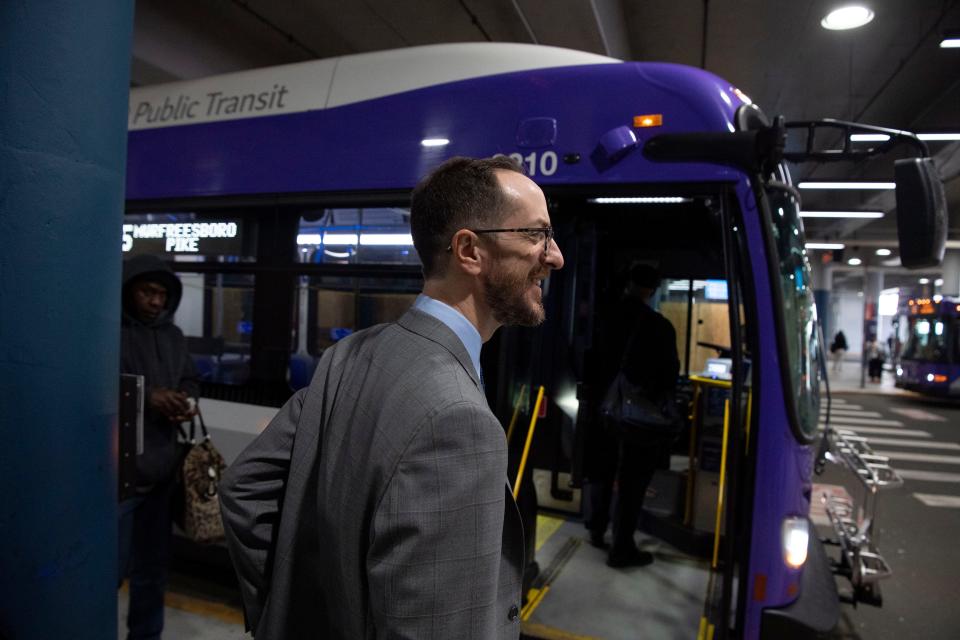
The announcement came without the flash of previous attempts to revamp public transit in Nashville. In 2017, then-Mayor Megan Barry unveiled a $5.2 billion transit proposal featuring bus rapid transit, light rail and a tunnel below downtown at Music City Center after a four-month planning process. In 2012, then-Mayor Karl Dean introduced a proposal for a $175 million, 7.1-mile bus rapid transit line running east to west along West End Avenue, complete with renderings.
Barry's referendum lost decisively at the ballot box in 2018. Dean's vision for the proposed bus line, dubbed the "Amp," fizzled unceremoniously in 2015 after years of intense campaigning between the plan's detractors and supporters.
O'Connell's administration is taking a different tack, pulling from more than a decade of Metro planning reports and tens of thousands of minutes of community input on those plans. WeGo, Nashville's public bus system, and the Nashville Department of Transportation began a master mobility study as O'Connell took office — work that can now be accelerated.
His administration spent weeks exploring whether it was feasible to meet the many requirements to get a referendum on the ballot in an abbreviated 7-month timeline before giving the referendum effort the green light.
"To me, this is really just an announcement that we're going to be building on all of that professional work ... and we think we've got enough material between WeGo and NDOT in particular that we can build a good, common-sense plan that is going to help people move around the city more easily, conveniently and affordably," O'Connell told The Tennessean.
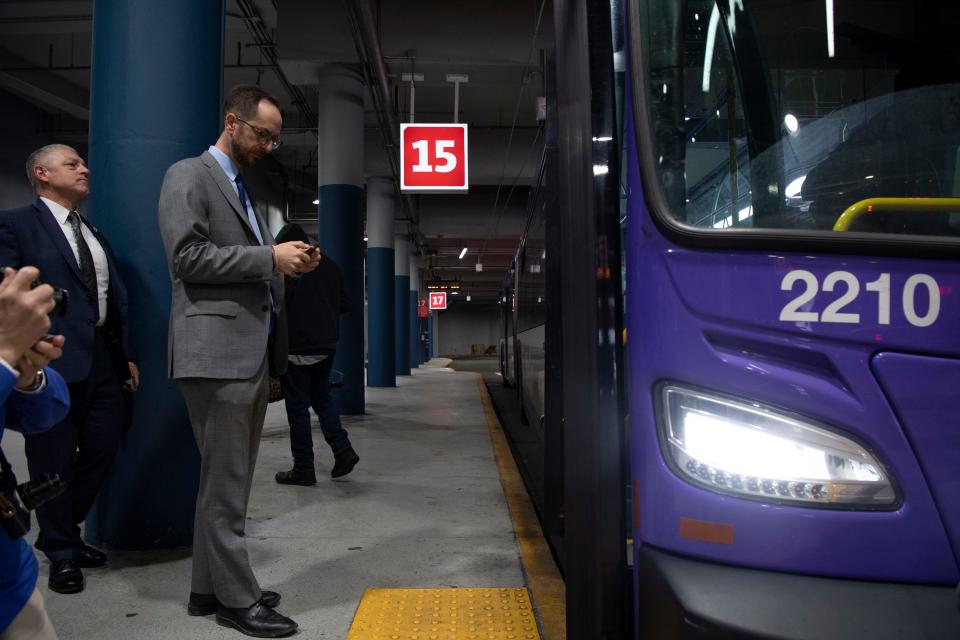
More: How Nashville wants to solve its downtown traffic problem
The plan: Broad strokes and a condensed timeline
To successfully get a transit referendum on the ballot, O'Connell's administration will need to finalize a plan quickly, solicit public feedback and obtain approval from a third-party public accounting firm, the state comptroller and Metro Council — all before the final ballot text is due to the Davidson County Election Commission on Aug. 22.
In the coming weeks, O'Connell's administration will engage with Nashville's 40-member council, a technical advisory committee of people familiar with transportation planning and a community advisory committee focused on neighborhood impact.
While specifics of the proposed transit projects have yet to be released, O'Connell has indicated that the plan will not be primarily focused on light rail, instead focusing on improving infrastructure, service levels and community transit centers.
Bolstered bus service and bus rapid transit corridors, a high-capacity corridor to the airport and funding for sidewalks (an estimate of how many miles of sidewalk is still "a few weeks out") featured prominently in his mayoral campaign.
"This is ... frankly going to be one of our fastest sidewalk delivery tools that we've got," he said.
The plan will also include modernization measures that will "meaningfully improve the way our roads work for everybody on them, including motorists," O'Connell said.
Affordability is one of O'Connell's main selling points for a referendum.
Dedicated funding to bolster public transit is a "missing ingredient" toward reducing residents' cost of living, growing workforce and economic development capacity, and opening opportunities for financial empowerment for more working families, he said.
More: Could Nashville vote on mass transit next year? What a successful path may look like
Public outreach
The limited timeline for a November vote means O'Connell's administration will need to simultaneously craft a transit plan, engage with the public and campaign for their support.
O'Connell said the community advisory committee will play a key role here, in addition to a coalition of local organizations who continued to push for transit improvements after the 2018 referendum failed.
A review of the rejected "Let's Move Nashville" plan by New-York based foundation TransitCenter asserts that the campaign did not meaningfully engage with minority voters.
"The campaign strategy depended on African American support, but the mayor's office alienated African American voters repeatedly during the year leading up to the election," the report states.
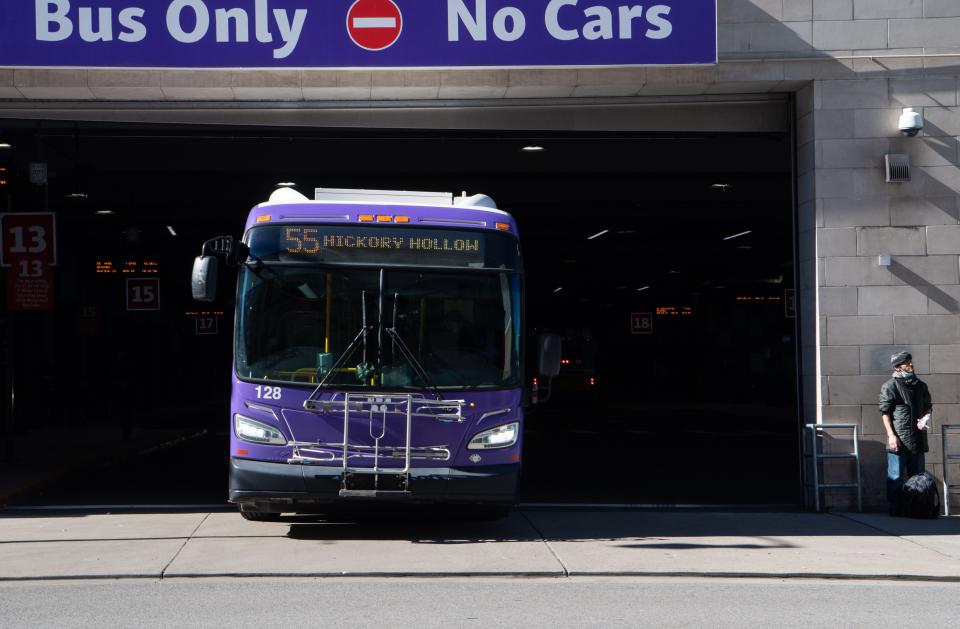
Failing to include Black voices in messaging, outreach, and campaign organization left room for opposition to undercut the campaign's focus on equity, according to the report. Not enough was done to address concerns about gentrification, displacement and affordability — elements future campaigns can learn from.
O'Connell said he aims to have people who reflect Nashville's diversity participate in and "guide the conversation."
Different areas of Nashville have unique challenges.
"In North Nashville — and I know this from having lived there and represented a part of it — it has been a challenge to get meaningful, high-quality capital development off the ground there more so than in other parts of the city," O'Connell said.
Projects like the Dr. Ernest Rip Patton Jr. North Nashville Transit Center, which is slated to open this spring, may help address historic underinvestment.
In South Nashville, one of Metro's fastest-growing regions, infrastructure challenges have been prominent, O'Connell said.
"We're hoping to be able to address both of those concerns in geographies of the city that we know have higher minority populations," he said.
Who foots the bill?
Passed by the Tennessee General Assembly in 2017, the IMPROVE Act allows Nashville and some other cities and counties the ability to dedicate revenue from certain tax increases to improve transit infrastructure.
Eligible taxes (within certain limits) include local sales tax, hotel/motel occupancy tax, business tax, residential development tax, motor vehicle tax and local rental car tax.
The 2018 proposal relied on a mix of tax revenue, including a 0.5% increase in sales tax that would step up to a 1% increase after four years.
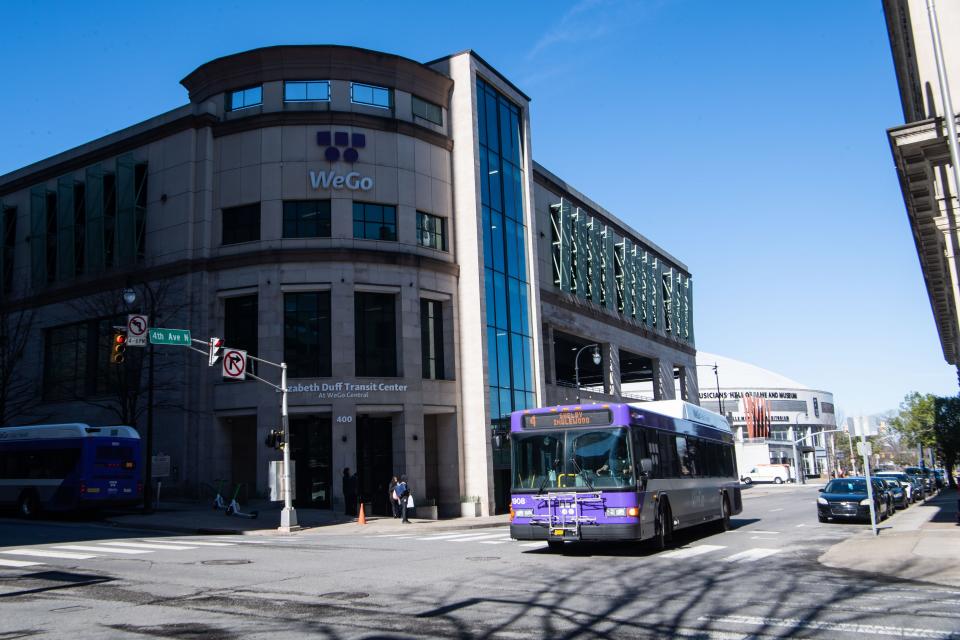
Sales tax is generally recognized as a significant revenue source, but advocates who support improved transit may be reticent to approve a sales tax increase. Nashville's current sales tax is 9.25%, and sales tax is considered regressive, impacting lower-income taxpayers proportionally more than higher-income taxpayers.
O'Connell said it's a "tricky balance" to strike within the limits of the state-approved toolkit.
"If we had done this two years ago, you might have said hotel-motel (tax) should be a top candidate, but after the stadium deal, it's tougher," he said. The deal to build a new Tennessee Titans stadium, passed under former Mayor John Cooper's administration, is partially funded by a 1% hotel tax increase.
A 2016 review of Middle Tennessee public transportation funding sources from the Canada-based Victoria Transport Policy Institute identifies sales taxes and property taxes as distributing tax burden widely and drawing significant revenue.
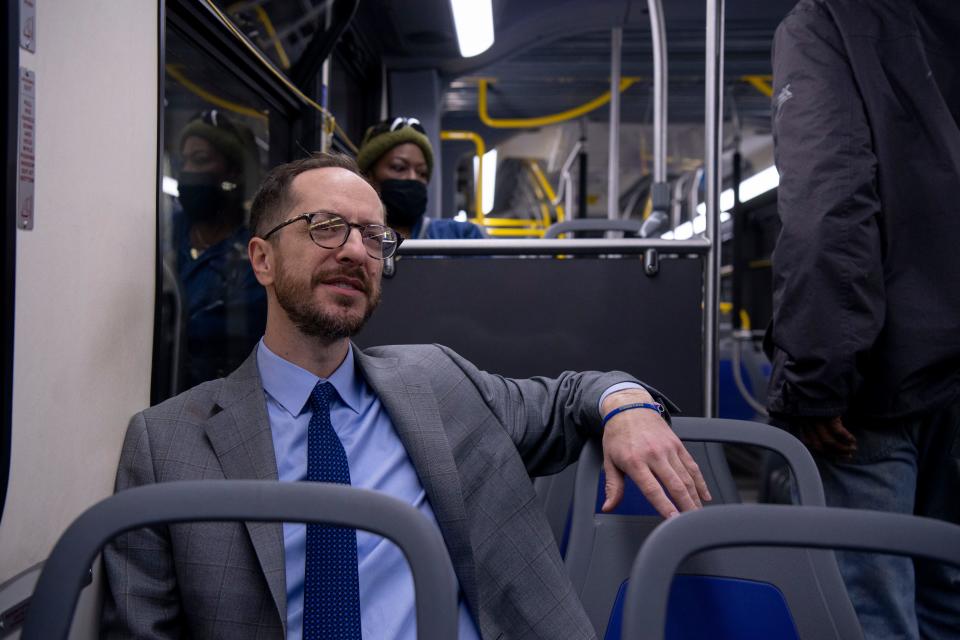
The institute's founder and Executive Director Todd Litman, who worked to build a case for the 2018 referendum, said household savings opportunities offered by reliable public transit may justify a higher sales tax.
"Sales tax is regressive, but it's not necessarily more regressive than some of the other funding options, and it's far less regressive than not having affordable transportation," Litman said. "A typical low-income household is far better off if there is a special sales tax that provides affordable transportation."
The idea of raising property taxes for dedicated transit funding (which is outside of the bounds of the IMPROVE Act) also presents challenges because property tax allocations can be changed from mayoral administration to mayoral administration, or from year to year by Metro Council, O'Connell said. The mayor does not plan to recommend a property tax increase for the next fiscal year. Securing dedicated funding for transit is meant to lock in the longevity and predictability necessary for planning yearslong projects.
"If we use the IMPROVE Act, we effectively increase the probability of future state and federal funding as well as adjacent grants from organizations that work on infrastructure," he said.
More: Nashville to receive $13M federal grant to transform Nolensville Pike, improve safety
More: Nashville's WeGo wins $10.7M in state funds for improved bus stops. See where
This article originally appeared on Nashville Tennessean: Nashville transit: Mayor O'Connell talks transportation vote issues

